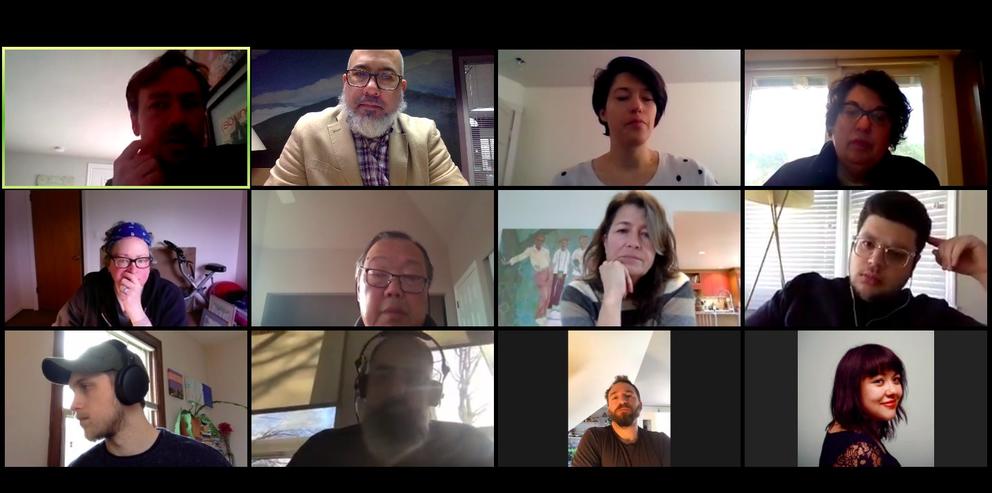Yet we persevere. Most journalists do, not for heroic recognition, but rather simply toward an obligation to the creed of essential public-interest news reporting to effectively inform the communities we serve and happen to call home.
The Society of Professional Journalists charges newsrooms like ours with seeking and reporting truth, minimizing harm and being accountable and transparent. Over the past week, the Crosscut staff has fled the newsroom, an unprecedented course of action during an unprecedented period in time for everyone reading this. Our team of 30 dedicated journalists is now working remotely from their homes as the state, and much of the world, becomes expert in “social distancing” best practices.
We're quickly coming to know our colleagues’ house pets on a first-name basis, as these companions hop onto the laps of their owners, often in the middle of our new online-only editorial planning meetings. Impromptu newsroom chats about how to improve stories as they’re prepared for publication now happen in a Slack channel instead of the office hallways. On Tuesday we sang happy birthday to beloved senior video producer Stephen Hegg during our weekly staff meeting — each of us from quiet corners of our homes on a multibox video stream that would make The Brady Bunch show open producers envious.
Inconveniences of rethinking some of our newsroom processes aside, we fully realize the massive scope and magnitude of the global story that’s overtaken our region.
Crosscut first began in-depth reporting on the coronavirus outbreak in early February. Since then, our nonprofit public media newsroom has reported more than 20 original news stories and opinion columns.
However, as the case with our broader mission to tell stories and provide context and analysis that help people understand our fast-changing region, it's never about story count at Crosscut — but, instead, stories that count. Our reporting focus is on context, depth and quality, not quantity. Our journalists typically spend more time researching, gathering, and developing the standard Crosscut story than most reporters in the fast-paced breaking news world today are afforded.
In case you missed it, some of these break-through stories focus on:
- The added fears and anxiety for the vulnerable population living with weakened immune systems such as Seattle council member Debora Juarez
- Asian Americans saying they are increasingly being harassed and blamed for the COVID-19 outbreak
- How after coronavirus cancellations, Seattle's creative economy's call for help
- Workers losing jobs and worrying about paying rent
- A very powerful and personal story from Knute Berger on the tight grip the Spanish Flu held over Seattle a century ago
- Science and Environment reporter Hannah Weinberger, along with Crosscut's audience engagement team, answering reader questions on the outbreak via our public-powered community reporting project Northwest Wonders
Whether it's from the field, our homes or the Crosscut newsroom, we accept the obligation to serve and inform our local communities with the highest regard. And we are honored that you would turn to our nonprofit news outlet for credible information during these uncertain times. Both today and tomorrow.
Thank you for supporting us.
Editor's note: This story originally appeared in Crosscut's Weekly newsletter. Not yet subscribed? Get signed up, below, or head here to learn more of our newsletters.
Get the best stories of the week
This weekly newsletter dives deeper into one story and how it was reported, along with curating the best stories of the week.



